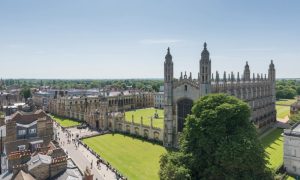Canada has long been a globalimmigrantsIt is one of the most popular destinations in the world, attracting immigrants from all over the world with its high quality of life, stable social welfare system and multicultural environment. Whether through skilled migration, employer-sponsored migration, family reunification orinvestment immigration, and Canada all offer a variety of immigration pathways. So, 2024.Immigration to CanadaWhat are the requirements to be fulfilled? What fees do I need to pay during the application process? This article will provide you with a detailed analysis.
One,Immigration to Canadathe main means of achieving the Millennium Development Goals (MDGs)
1. Skilled Migration (Express Entry)
Skilled immigration is one of the most common forms of immigration to Canada for applicants with specific skills and experience. Through Canada's **Express Entry** system, skilled workers can apply to become permanent residents.Express Entry is scored based on factors such as age, educational background, work experience, and language proficiency, and the higher the score, the greater the likelihood of approval.
2. Employer-sponsored immigration
If you find an employer in Canada who is willing to offer you a job, you can apply for theEmployer-sponsored immigration. Employer-sponsored immigration is available to applicants who have specific occupational skills and who have been offered a job by a Canadian employer. Employers are required to submit a Labor Market Impact Assessment (LMIA) to demonstrate that the hiring of foreign workers will not affect the local Canadian labor market.
3. family reunification
Canada offers a family reunification immigration policy for spouses, minor children and parents of Canadian citizens or permanent residents. Applicants must be able to demonstrate a close relationship with their sponsor and meet certain financial requirements to ensure that they can support their family members.
4. Provincial Nominee Program (PNP)
If you have found a job in a province or are interested in investing, you can immigrate through the **Provincial Nominee Program (PNP)**. Provinces and territories set different immigration requirements based on their own needs. Applicants can obtain additional points from Canada's national immigration system through the PNP, thus improving their chances of obtaining permanent residence.
5. investment immigration
For affluent individuals who have certain assets and wish to invest in Canada, Canada offers an Immigrant Investor Program. Through the Immigrant Investor Program, applicants can qualify for permanent residency by investing a specific amount of money in a business or project in Canada. This type of immigration program has strict financial requirements and evaluation criteria.
II. Basic conditions for immigration to Canada
Whichever immigration route you choose, applying forImmigration to CanadaThe following basic conditions usually need to be met:
1. verbal ability
Canada requires immigrant applicants to have some language skills, usually English or French. Passed** IELTS (International English Language Testing System)maybeThe Test of French as a Foreign Language (TEF)** to demonstrate language proficiency. For skilled and employer-sponsored immigrants, a higher language score increases your Comprehensive Rating System (CRS) score, which improves your chances of getting an invitation.
2. working experience
Work experience requirements vary by immigration category. Skilled immigration requires applicants to have a certain number of years of relevant work experience, usually at least 1-2 years of full-time work experience is required. In addition, the work experience needs to match the type of occupation specified in Canada's National Occupational Classification (NOC).
3. educational background
Immigration to CanadaThe system has certain educational requirements for applicants. Generally, an advanced degree (such as a Bachelor's, Master's or PhD) will increase your immigration points. Canada also recognizes qualifications from other countries, but they may require aAcademic Accreditation (ECA), to confirm its equivalence in Canada.

4. Health and safety
All immigration applicants are required to undergo health checks and background security checks. If an applicant or a member of his or her family has a serious health problem or criminal record, it may affect the success of the immigration application.
5. economic capacity
Some immigration pathways, such as family reunification and immigrant investor, require sponsors to have a certain level of financial means. Applicants must demonstrate that they or their sponsors are able to live independently in Canada without relying on social benefits.
III. Costs of immigration to Canada
The cost of immigrating to Canada varies depending on the immigration category and individual circumstances. Below are some of the common costs:
1. Application Fee
- Express Entry Application Fee: When a skilled immigrant applies through Express Entry, the fee is $$1,365 for the principal applicant, $$1,365 for the spouse or partner, and $$230 for each dependent child.
- Provincial Nominee Fees: Application fees for the Provincial Nominee Program typically range from $$250 to $$1,500, depending on the province and category.
- Family Reunification Immigration Fees: The fee for sponsoring a spouse, child or parent is $$1,050 (for the principal applicant) and $$150 (for each child).
- Immigrant Investor Fees: Immigrant Investor Programs are expensive and usually include an application fee, an investment amount and an administrative fee. For example, the Quebec Immigrant Investor Program requires the applicant to make an investment of $$1,200,000 and the application fee ranges from approximately $$15,000 to $$20,000.
2. Medical examination fees
All immigration applicants are required to undergo a medical examination, which usually costs between $$100 and $$300, depending on the medical examiner and the location of the application.

3. Language test fees
Language tests (e.g. IELTS or TEF) cost approximately $200 to $300 Canadian dollars. The results will be used as part of your immigration application and will affect whether or not you are able to obtain an invitation.
4. Other expenses
In addition to the above fees, the application process may involve fees for academic certification, translation fees, attorney or immigration consultant fees, and so on. The exact costs will vary depending on individual circumstances and the services chosen.
IV. Budget for the total cost of immigration to Canada
Overall.Immigration to CanadaThe total cost ranges from a few thousand to hundreds of thousands of Canadian dollars, depending on the type of immigration, the number of family members, and the services chosen. In the case of skilled or employer-sponsored immigration, the cost for a single applicant may be around $$2,000 (excluding immigrant investor, living expenses, etc.), while immigrant investor requires a larger amount of capital investment.
V. Summary
Immigration to CanadaIt is a complex process that involves a number of conditions and costs.In 2024, Canada continues to welcome immigrants with skills, entrepreneurial spirit or family reunification needs. Whether you choose skilled immigration, employer-sponsored immigration, immigration through family reunification or investment, Canada offers a variety of pathways for you to choose from.
Before planning to immigrate to Canada, it is advisable to carefully assess your qualifications, understand the specific requirements and costs of each type of immigration route, and prepare the relevant documents. If necessary, you can also seek the help of a professional immigration lawyer or consultant to ensure that your application goes through smoothly!






